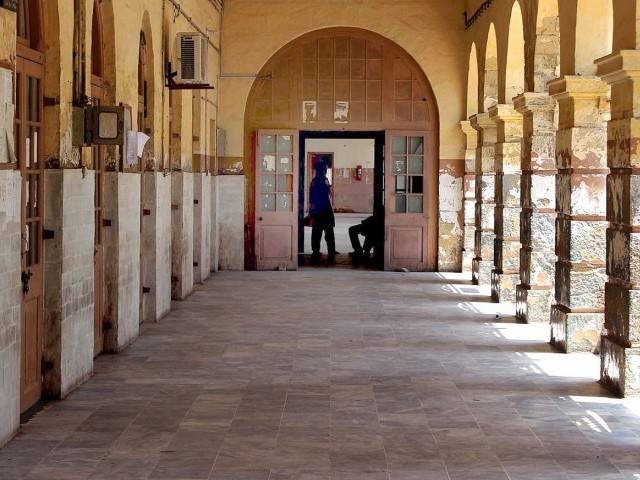Absconders acquitted after appearing via video link
Rawalpindi district court approves compromise between the murder suspects, victim’s family after a virtual appearance

Rawalpindi district court approves compromise between the murder suspects, victim’s family after a virtual appearance. PHOTO: FILE
Though there have been several instances where the courts have recorded testimonies through video links – the logical next step in the adoption of video voice calls - but this, perhaps, is the first time when a court has concluded a case and passed judgment in the virtual presence of the accused and the actual presence of the parties in the courtroom. “As both accused are absconders and residing abroad, so statements of both were recorded online via Imo [messenger and video application],” noted Rawalpindi District and Sessions Judge Sohail Nasir. “I am satisfied,” the judge wrote in his judgement as he certified that a compromise between the legal heirs of deceased and the two accused was “genuine” and “hence requires to be given effect”. “This compromise, therefore, now shall operate as an acquittal in terms of Section 345 Criminal Procedure Code,” he stated in the judgment.
Kamran alias Kami and Muhammad Haseeb were accused of killing Abdul Rahim. Chauntra police had registered a murder case against the two men under section 302 (premeditated murder) and 34 (common intention) of the Pakistan Penal Code on May 26, 2011. The police had charge-sheeted the accused. But the two men fled abroad.
Out of reach of local police, officials filed to declare the two absconders in the case. But almost six years later— on July 5, 2017 — Rahim’s father Khuda Bukhsh and mother Zainab Khatoon through their counsel Zaheer Akhtar filed an application stating that they have struck a compromise with the absconders and would have no objection if the suspects were acquitted. After the Chauntra police station SHO verified Rahim’s legal heirs from the revenue authorities, the court on September 9 recorded the statement of the heirs.
The victim’s family stated that they had “forgiven the accused” in the name of God, “without receipt of any compensation.” They confirmed to the court that they had not been pressurised into the compromise. To further verify the parleys between the victim’s family and the suspects, the court recorded the statement of Mumtaz Ahmed Raja, the vice chairman of Union Council 100, who confirmed that the compromise was genuine, the status of the legal heirs and identified them before the court. “I am conscious of the fact that both the accused are absconders but the law does not prohibit me to pass a favourable order on the basis of a compromise,” Judge Nasir stated.
In an earlier order, the judge had noted that the Rahim’s legal heirs can compound the offence – murder and absconding - with the accused. When the petitioner’s counsel told the court that Kamran was living in England while Haseeb was in Saudi Arabia, the court said it can only direct them to appear before him. Later, both the suspects agreed to join the proceedings through video link while secure in their foreign abodes. After they appeared before the judge, the compromise was accepted and the two men were acquitted without actually appearing before the court. Rare provisions Recently, the Islamabad High Court (IHC) granted protective bail to three high-profile suspects — former information minister Sharjeel Inam Memon, former communications minister Arbab Alamgir and his wife former MNA Asma Arbab — in absentia which is rare.
The politicians had sought relief through their counsel as they were abroad and wanted to surrender before the relevant court without being arrested. Broader implications Use of technology is evident in every courtroom of the country yet acquittal through the latest digital tools is a rare incident. With the court order not dismissing the provision of using the judgement or the manner in which the trial was conducted to be used as a precedent, questions have been raised about whether the method can be used in other cases where the suspects are living abroad and have been declared as proclaimed offenders. While reacting to the news of “digital acquittal”, some legal experts said that the use of technology can reduce costs and improve the speed and efficiency of the judicial system. They said that it also has the potential to improve the delivery of justice itself. Swift digital justice might still be a distant dream but is no longer a thing of past. It’s happening now.
Published in The Express Tribune, October 9th, 2017.



















COMMENTS
Comments are moderated and generally will be posted if they are on-topic and not abusive.
For more information, please see our Comments FAQ